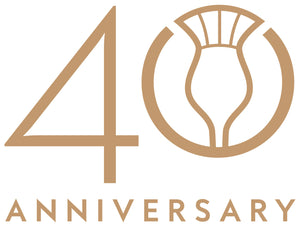The History of Corporate Gifting and How Hampers Became Part of It
Giving gifts in business is nothing new. Long before emails, sales meetings, and digital marketing, people still found ways to show appreciation, loyalty, and respect. What has changed is how those gestures look today. From handwritten notes and fine stationery to luxury food baskets, corporate gifting has evolved alongside the business world itself.
The Early Days of Business Giving
The roots of corporate gifting go back centuries. In Britain and across Europe, merchants would often exchange small tokens during festive seasons to mark successful partnerships. It might have been a fine bottle of wine, a basket of fruit, or a hand-crafted item. The idea was simple. Gifts helped build trust and maintain good will between people who traded together.
By the Victorian era, gifting had become a social custom. Wealthy families and business owners gave hampers filled with preserved meats, cheeses, and puddings to staff and clients. Rail travel made it easier to send these gifts over long distances, and companies such as Fortnum & Mason and other early producers of food hampers built reputations around the quality of their baskets.
The Rise of Corporate Etiquette
As the industrial age created larger companies, corporate gifting took on new meaning. It became part of professional etiquette. A well-timed gesture could strengthen a partnership or smooth a negotiation. Business relationships were often personal, so a thoughtful present showed respect and built loyalty.
However, as workplaces grew, gifts became less personal and more symbolic. Instead of hand-picked items, companies began ordering larger quantities of similar gifts to distribute at once. This was the beginning of the modern corporate gift market.
Post-War Prosperity and the Birth of the Hamper Industry
After the Second World War, Britain saw renewed prosperity. Businesses wanted to recognise their staff and reward clients during the holidays. Food rationing had ended, and luxury items like chocolate, wine, and smoked salmon became special again. Hampers were a perfect way to celebrate that sense of abundance.
By the 1960s and 70s, corporate hampers had become an annual tradition. Companies ordered them in bulk before Christmas, and employees looked forward to opening them at the end of the year. These hampers represented success, appreciation, and festive cheer all in one package.
The Age of Branding and Thoughtful Gifting
As business became more global and competitive, the approach to gifting changed again. The focus shifted from volume to meaning. Companies wanted to give gifts that reflected their values and brand identity. A well-chosen hamper became more than a seasonal bonus. It became a way to tell a story about the company that sent it.
Food and drink continued to play a leading role because they bring people together. A hamper filled with fine Scottish produce, quality wine, and artisan treats says a great deal about care and attention to detail. It also creates a shared experience, even when a company’s staff or clients are far apart.
Modern Corporate Hampers and Personalisation
Today, the corporate hampers market is stronger than ever, but the approach is more refined. Companies look for suppliers who can deliver quality, presentation, and reliability. They also want gifts that can be tailored to different tastes, dietary preferences, or themes.
Remote work has changed how these hampers are delivered. Instead of bulk orders to one office, many businesses now send hampers directly to employees’ homes. This shift keeps everyone included and maintains a sense of connection in hybrid teams.
Suppliers such as Highland Fayre have adapted perfectly to this change. With decades of experience creating Christmas Hampers and bespoke corporate gifts, they help businesses celebrate success in a way that feels personal yet professional. Each hamper is designed to make a lasting impression while reflecting the company’s care for the people who receive it.
Why the Tradition Endures
Corporate gifting has survived so many changes because it speaks to something timeless. It recognises effort, builds loyalty, and creates moments of connection in a world that can feel increasingly digital. Even as technology transforms how companies operate, the act of giving remains deeply human.
A well-chosen hamper still has the power to make someone feel appreciated. It carries a sense of thoughtfulness that cannot be replaced by a message or a bonus alone. Businesses may use different tools today, but the purpose behind gifting is the same as it was centuries ago.
Looking Ahead
As companies focus more on sustainability and conscious spending, the future of corporate gifting will continue to evolve. There is growing demand for ethically sourced, environmentally friendly products and packaging. Hampers filled with local produce and recyclable materials are becoming the standard.
What will not change is the reason gifting matters. From the merchant’s handshake in the 1800s to the beautifully packed hampers arriving at offices and homes today, these gestures remain a quiet but powerful part of how businesses build relationships.
Corporate gifting is not just about celebration. It is about connection. And in that sense, the humble hamper has travelled through history to become one of the most enduring symbols of appreciation in the business world.
 01738 639 222
01738 639 222





